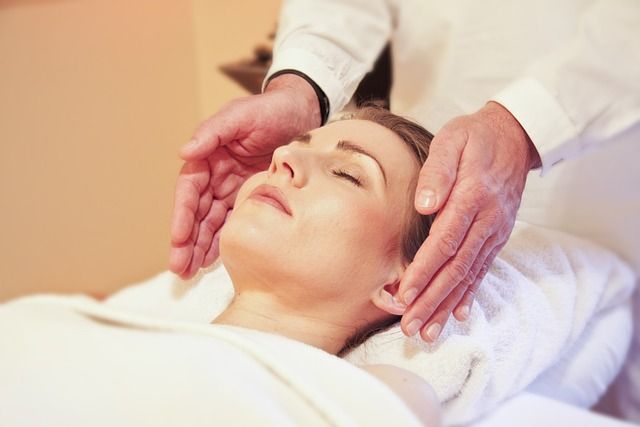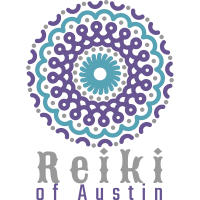The Role of Reiki in Holistic Mental Health Care
Understanding The Impact of Reiki in People’s Mental Health

In recent years, there has been a growing recognition of the importance of holistic approaches to mental health care, which address the interconnectedness of the mind, body, and spirit. Among these approaches, Reiki—a Japanese energy healing technique—has gained popularity for its potential to promote emotional well-being, reduce stress, and enhance overall mental health.
Reiki, which translates to "universal life energy," is a gentle and non-invasive healing modality that originated in Japan in the early 20th century. Rooted in the belief that energy flows through all living beings, Reiki practitioners channel this universal life force energy through their hands to promote relaxation, balance, and healing on physical, emotional, and spiritual levels. During a Reiki session, clients typically lie fully clothed on a massage table while the practitioner places their hands lightly on or near various parts of the body, facilitating the flow of energy and promoting a state of deep relaxation and well-being.
Can Reiki Help With Specific Mental Health Conditions Such As Anxiety, Depression, Or Trauma?
Reiki, a holistic healing modality that focuses on balancing the body's energy, has shown promise in providing relief for various mental health conditions, including anxiety, depression, and trauma. While Reiki is not a substitute for traditional mental health treatments, it can complement existing therapies and offer additional support for individuals struggling with these challenges.
For anxiety, Reiki's calming effect can help induce a state of deep relaxation, reducing feelings of tension and stress. By promoting a sense of peace and tranquility, Reiki may alleviate symptoms of anxiety and provide individuals with a coping mechanism for managing anxious thoughts and emotions.
Similarly, Reiki has been found to be beneficial for individuals dealing with depression. The gentle energy work of Reiki can uplift the spirit, soothe the mind, and restore emotional balance. Regular Reiki sessions may help individuals experiencing depression regain a sense of hope, joy, and connection to themselves and others.
In the context of trauma, Reiki offers a gentle and non-invasive approach to healing emotional wounds. Trauma often results in the accumulation of stored energy and emotions within the body. Reiki helps release this stagnant energy, allowing for emotional release and healing. By addressing the energetic imbalances associated with trauma, Reiki can support individuals in processing their experiences, reducing symptoms of post-traumatic stress, and restoring a sense of safety and well-being.
It's important to note that while Reiki can be a valuable tool for supporting mental health, it is not a replacement for professional mental health treatment. Individuals dealing with anxiety, depression, or trauma should seek guidance from qualified mental health professionals and consider integrating Reiki as part of a comprehensive treatment plan. Additionally, results may vary from person to person, and it's essential to approach Reiki with an open mind and a willingness to participate in the healing process.
Benefits of Reiki for Mental Health
· Stress Reduction: Reiki promotes relaxation and stress reduction by activating the body's natural relaxation response and calming the sympathetic nervous system. As stress levels decrease, clients often experience feelings of peace, tranquility, and emotional balance.
· Anxiety Relief: Reiki can be effective in reducing symptoms of anxiety by helping to quiet the mind, release tension, and promote a sense of inner calm and resilience. Many clients report feeling more grounded, centered, and at ease after a Reiki session.
· Emotional Healing: Reiki can support emotional healing and release by helping to identify and release energetic blockages, traumas, and negative emotions stored in the body. Clients may experience a sense of emotional release, clarity, and empowerment as stagnant energy is cleared and balanced.
· Mood Regulation: Reiki may help regulate mood and improve emotional stability by balancing energy centers, or chakras, in the body. By promoting energetic harmony and flow, Reiki can help alleviate mood swings, irritability, and emotional fluctuations.
· Self-Exploration and Self-Care: Reiki encourages self-exploration, introspection, and self-awareness, fostering a deeper connection with one's inner self and intuition. Regular Reiki practice can support self-care practices and cultivate a greater sense of self-love, acceptance, and empowerment.
Applications of Reiki in Mental Health Care
· Stress Management: Reiki can be used as a complementary therapy to help individuals manage stress, anxiety, and burnout, particularly in high-stress environments such as workplaces, schools, and healthcare settings.
· Trauma Recovery: Reiki can support trauma recovery and healing by helping individuals process and release traumatic memories, emotions, and energetic imbalances stored in the body.
· Depression Treatment: Reiki may complement traditional treatments for depression by promoting relaxation, reducing symptoms of sadness and hopelessness, and enhancing emotional resilience and coping skills.
· Addiction Recovery: Reiki can be a valuable tool in addiction recovery by helping individuals manage cravings, reduce withdrawal symptoms, and address underlying emotional issues contributing to addictive behaviors.
· Mindfulness and Meditation: Reiki can deepen mindfulness and meditation practices by promoting relaxation, concentration, and inner awareness.
Evidence-Based Practices
While research on Reiki's efficacy in mental health care is still emerging, preliminary studies suggest promising results. For example, a 2017 systematic review published in the Journal of Evidence-Based Complementary and Alternative Medicine found that Reiki was associated with significant reductions in anxiety, depression, and pain, as well as improvements in quality of life and well-being. Additionally, a 2018 meta-analysis published in the same journal concluded that Reiki may have a beneficial effect on depression, anxiety, and stress, particularly when used as a complementary therapy alongside conventional treatments.
As interest in holistic approaches to mental health care continues to grow, Reiki is emerging as a valuable tool for promoting emotional well-being, reducing stress, and enhancing overall mental health. By addressing the mind-body-spirit connection and promoting energetic balance and harmony, Reiki offers a gentle and non-invasive way to support mental health and wellness. Whether used as a standalone therapy or as part of an integrative treatment plan, Reiki has the potential to empower individuals on their healing journey and promote greater emotional resilience, self-awareness, and inner peace.









